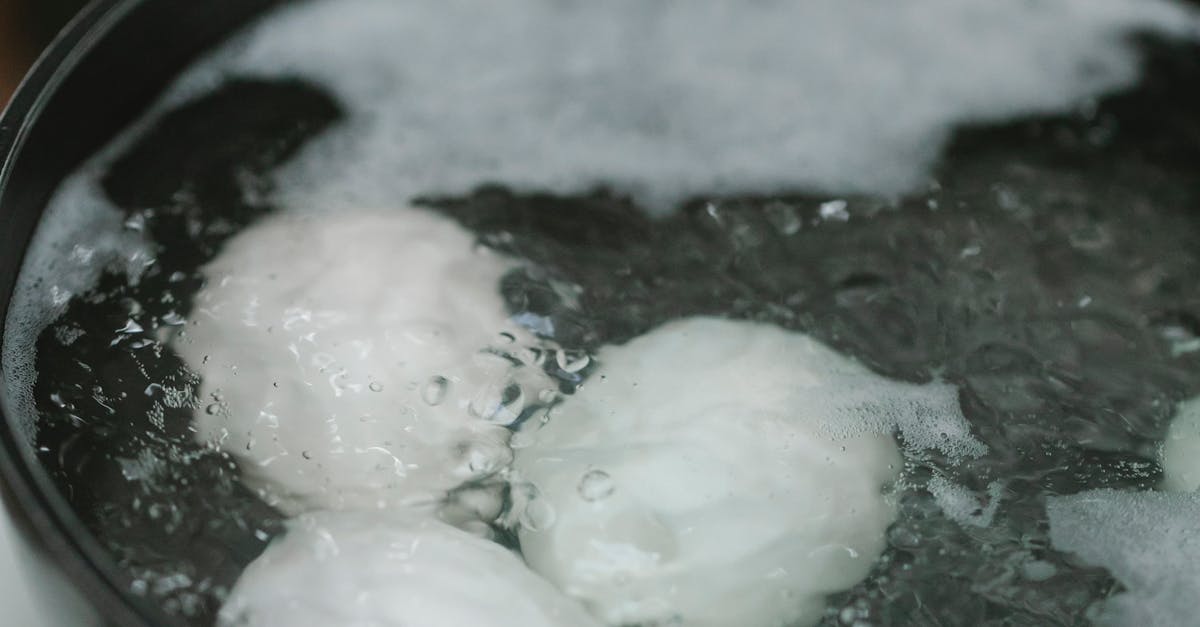
Table Of Contents
Limited Hot Water Supply During Peak Demand
Heat pump hot water heaters often struggle to meet high demand during peak usage periods. Households may find themselves faced with insufficient hot water, especially during mornings or evenings when multiple showers and appliances draw from the system simultaneously. This limitation can be frustrating and may lead homeowners to reconsider their options for hot water installation, particularly if their daily routines involve consistent high demand.
To alleviate hot water shortages, some homeowners might choose to incorporate a backup system or consider larger heat pump units designed for increased capacity. This could help to ensure a steady supply even during peak times. Additionally, understanding household hot water usage patterns can guide the selection of the most appropriate system, ultimately making hot water installation a more effective solution for diverse needs.
Strategies to Manage Demand Effectively
Managing demand for heat pump hot water heaters requires careful planning and scheduling. Homeowners can benefit from using timers that allow them to heat water during off-peak electricity hours. This strategy not only ensures a steady supply of hot water but also takes advantage of lower energy tariffs. Additionally, investing in smart home technology can help monitor usage patterns and adjust heating schedules accordingly, ensuring that the water is heated only when necessary.
Another approach is to optimise the system's size based on household needs. Prior to any hot water installation, it's crucial to assess the number of occupants and their hot water consumption habits. Installing a system that aligns with actual demand can prevent issues related to insufficient hot water during peak times. Regular maintenance also plays a role in efficiency, ensuring that the heat pump operates effectively and extends its overall lifespan.
Environmental Impact Considerations
Heat pump hot water heaters are often lauded for their energy efficiency, but their environmental impact warrants careful consideration. While these systems can significantly reduce greenhouse gas emissions compared to traditional electric or gas water heaters, the manufacturing process and the refrigerants used can have detrimental effects on the environment. Understanding these aspects is crucial before committing to a hot water installation.
Another factor to evaluate is the source of electricity used to power the heat pump. In regions where fossil fuels dominate the energy mix, the carbon footprint associated with electric heat pumps can offset their advantages. Transitioning to renewable energy sources is essential to maximise the environmental benefits of hot water installation. Overall, a comprehensive approach is necessary to weigh all aspects of sustainability.
Understanding the Carbon Footprint
The carbon footprint of heat pump hot water heaters is an important consideration for environmentally conscious consumers. While these systems are generally more efficient than traditional electric hot water systems, their environmental impact can vary based on the source of electricity used to power them. In regions where the grid relies heavily on fossil fuels, the carbon emissions associated with electricity consumption can offset the benefits of the heat pump technology. This makes careful consideration of local energy sources essential when assessing the overall sustainability of a hot water installation.
Additionally, the manufacturing and disposal of heat pump systems contribute to their carbon footprint. The materials used in production, such as refrigerants, can have significant greenhouse gas implications. Understanding the complete lifecycle emissions of a heat pump hot water installation helps consumers make informed choices. Selecting energy-efficient models and ensuring proper maintenance can further mitigate environmental impacts, aligning consumer choices with broader climate goals.
Compatibility with Existing Plumbing Systems
Compatibility with existing plumbing systems is a critical factor when considering a heat pump hot water heater. These systems often require specific conditions to operate optimally, including suitable electrical connections and adequate space for installation. Many homes in Australia have traditional tank-based systems that may not easily accommodate the different demands of a heat pump system. This can result in additional costs to modify the plumbing, affecting the overall feasibility of the hot water installation.
Homeowners should also consider the insulation of their existing piping and the layout of their plumbing. Heat pumps function best when the hot water distribution system is well-insulated to minimise heat loss. If existing pipes are outdated or poorly insulated, this could compromise the efficiency of the heat pump and lead to higher energy consumption. Assessing these requirements before installation will help ensure a smoother transition to a more efficient hot water system.
Assessing System Requirements Before Installation
When considering hot water installation, it is crucial to evaluate existing plumbing infrastructure to ensure compatibility with a heat pump system. Many properties may have traditional systems that differ significantly in size, pressure, and temperature management. Assessing these factors before installation can prevent unnecessary renovations and ensure that the heat pump operates efficiently within the current framework.
Another key element to examine is the electrical capacity of the home. Heat pump hot water heaters often require higher power supply compared to conventional units. Inspecting the electrical panel and understanding the available capacity can help in determining whether additional upgrades are needed prior to hot water installation. This assessment is vital to avoid potential issues that may arise during or after the installation process.
FAQS
What are the main issues with heat pump hot water heaters?
The main issues include limited hot water supply during peak demand, potential environmental impact, and compatibility challenges with existing plumbing systems.
How can I manage hot water demand effectively with a heat pump hot water heater?
Strategies include scheduling hot water usage during off-peak times, increasing the tank size, or integrating a backup heating system to ensure hot water availability.
What environmental impacts should I consider when using a heat pump hot water heater?
While heat pumps are generally more energy-efficient, their environmental impact depends on the electricity source used to power them. It's essential to consider the overall carbon footprint associated with energy consumption.
Will a heat pump hot water heater work with my current plumbing system?
Compatibility with existing plumbing systems can vary. It's important to assess the system requirements prior to installation and consult with a professional to ensure a proper fit.
Are heat pump hot water heaters suitable for all climates?
Heat pump hot water heaters perform best in moderate climates, as their efficiency can decrease in extremely cold temperatures. It's advisable to evaluate local climate conditions before deciding on a heat pump system.





























